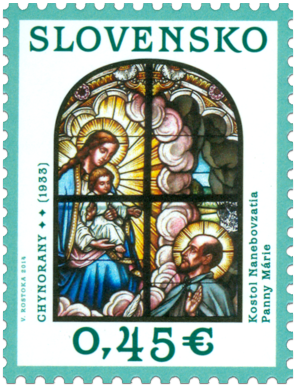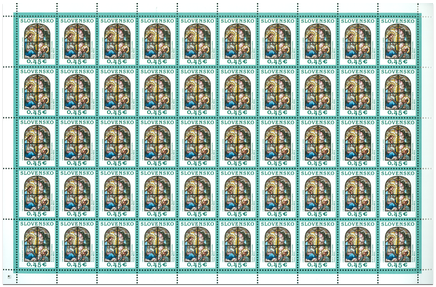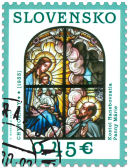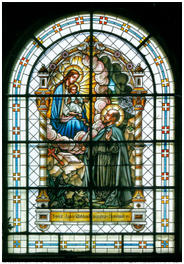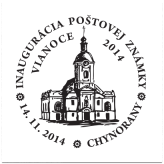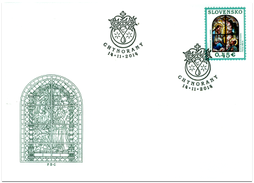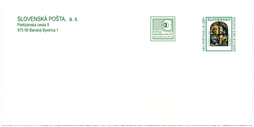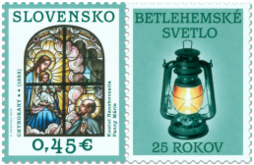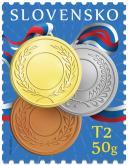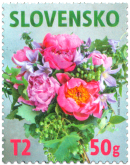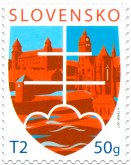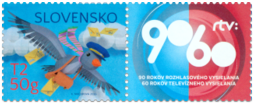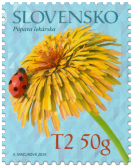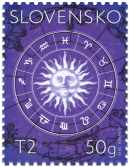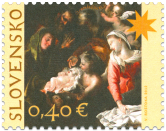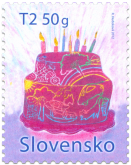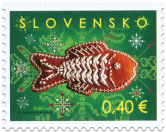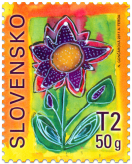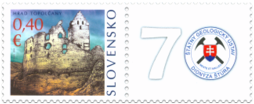575 Date of issue
14.11.2014 Face value
0.45 € Sell price
0.45 €
The phenomenon of historicizing glass paintings, from the turn of the nineteenth and twentieth century, earned their recognition in Slovakia only lately. (Ilona Cónová a kol. Vitráže na Slovensku. Bratislava 2006). The glass paintings followed the Neo-Renaissance and Neo-Classical style basically from the second half of the nineteenth century until the inter-war period. They represented not only examples of professional craftsmanship (lots of companies specialised in this field had already existed in surrounding countries, especially in Austria and Bohemia during this period), since their manually painted details and rendering of figures and their incarnate (faces, hands, etc.) exceed a period standard and classify them to the history of painting even from an above-regional perspective. Moreover, nonrigorous combinations of various styles modify also established ideas about styles changing and continuous artistic progress.
Located in the St. Mary Assumption Roman Catholic Church in Chynorany (Partizánske district), the set of eight glass windows is a complete glass painting collection whose creation was initiated by the then priest and canon, Ignác Wohland (1902–1955) in 1933. Therefore not surprisingly, one of the windows depicts his patron, St. Ignatius of Loyola − founder of the Society of Jesus (Jesuit order). The window renders him during a Marin vision, i.e. motif through which his hagiographic legend professes the legacy of St. Bernard of Clairvaux: he is kneeling in a black order robe covered with a blue coat. His face profile is turned to Mother of God sitting on the throne and holding Baby Jesus on her lap − an apparition which emerged on a lit cloud before him. The rocky background of the scene includes several items: a crucifix, an opened book with the typical monogram IHS and in addition a dedication inscription with the priest Wohland’s name. While the figures are inspired by Renaissance ornaments and decoration tradition, other window panes are quite ascetic. They alternate with a diagonal grid of white glass panes bordered with geometric or floral tapes and the motif of a cross, leaves or flowers. Thus, although only peripherally, the latest formal impulses known from the Art Nouveau and the style called Art Deco enrich the decoration, as well.
Dušan Buran
The stamps are with cypress perfume.
Show less© 2024 POFIS - Postal philatelic service. All rights reserved

